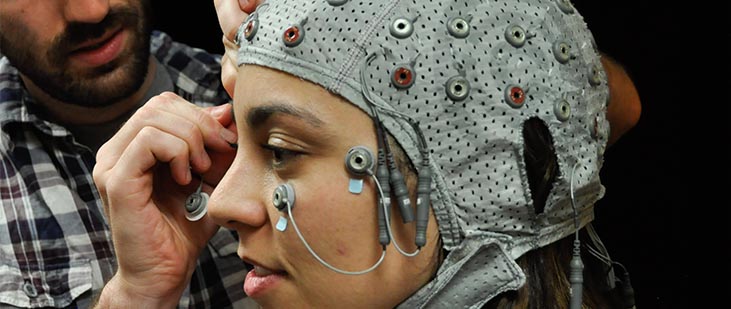By Christian Jarrett | British Psychological Society Research blog | September 29, 2014
A key finding from neuroscience research over the last few decades is that non-conscious preparatory brain activity appears to precede the subjective feeling of making a decision. Some neuroscientists, like Sam Harris, have argued that this shows our sense of free will is an illusion, and that lay people would realize this too if they were given a vivid demonstration of the implications of the science (see below). Books have even started to appear with titles like My Brain Made Me Do It: The Rise of Neuroscience and the Threat to Moral Responsibility by Eliezer J. Sternberg.
However, in a new paper, Eddy Nahmias, Jason Shepard and Shane Reuter counter such claims. They believe that Harris and others (who they dub “willusionists”) make several unfounded assumptions about the foundations of most people’s sense of free will. Using a series of vivid hypothetical scenarios based on Harris’ own writings, Nahmias and his colleagues tested whether people’s belief in free will really is challenged by “neuroprediction” – the idea of neuroscientists using brain activity to predict a person’s choices, and by the related notion that mental activity is no more than brain activity.
The research involved hundreds of undergrads at Georgia State University in Atlanta. They were told about a piece of wearable brain imaging technology – a cap – available in the future that would allow neuroscientists to predict a person’s decisions before they made them. They also read a story about a woman named Jill who wore the cap for a month, and how scientists predicted her every choice, including her votes in elections.
Most of the students (80 per cent) agreed that this future technology was plausible, but they didn’t think it undermined Jill’s free will. Most of them only felt her free will was threatened if they were told that the neuroscientists manipulated Jill’s brain activity to alter her decisions. Similar results were found in a follow-up study in which the scenario descriptions made clear that “all human mental activity just is brain activity”, and in another that swapped the power of brain imaging technology for the mind reading skills of a psychic. In each case, students only felt that free will was threatened if Jill’s decisions were manipulated, not if they were merely predicted via her brain activity or via her mind and soul (by the psychic).
Nahmias et al said their results showed that most people have a “theory-lite” view of free will – they aren’t bothered by claims about mental activity being reduced to neural activity, nor by the idea that such activity precedes conscious decision-making and is readable by scientists. “Most people recognise that just because ‘my brain made me do it,’ that does not mean that I didn’t do it of my own free will,” the researchers said.
As neuroscience evidence increasingly enters the courtroom, the findings have important implications for understanding how such evidence might influence legal verdicts about culpability. An obvious limitation of the research is its dependence on students in Atlanta. It will be interesting to see if the same findings apply in other cultures.
Read the post in full on the British Psychological Society’s Research blog.



